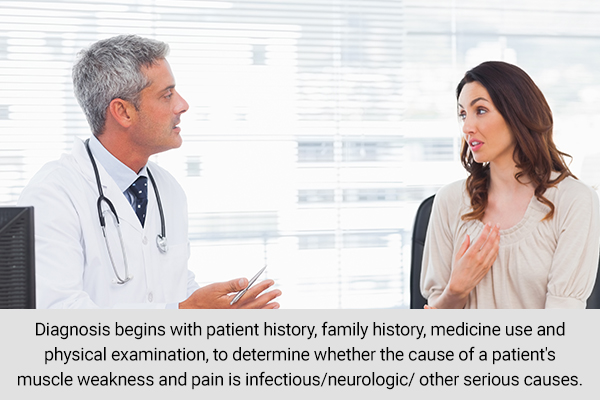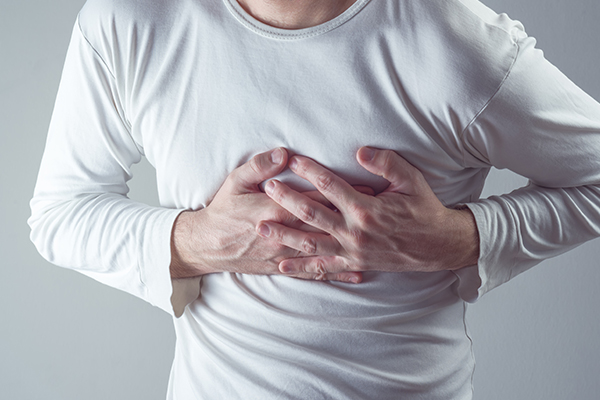In this article:
Muscle weakness can be very frustrating. Whether it’s caused by a chronic condition or simply from not getting enough exercise, it can make even the simplest tasks seem impossible.

Interesting trivia: There are 600 muscles in the human body, (1) and there is no difference in the number of muscles between men and women, but men have larger muscle mass. (2)
Fortunately, a number of home remedies can help to alleviate muscle weakness and improve your overall strength and health. Read on for some of the best ways to overcome muscle weakness, from dietary changes to supplements and exercises.
Causes and Symptoms of Muscle Weakness
There are many causes of muscle weakness. It can be caused by a lack of physical activity, which leads to muscle atrophy (wasting away). (3) It can also be caused by old age and certain medical conditions. Additionally, it can be a side effect of medications, such as steroids and statins. (4)
Some medical conditions may also lead to muscle pain:
- Fibromyalgia, a chronic condition causing pain and muscle stiffness (5)
- Myasthenia gravis, an autoimmune disease affecting the connection between nerves and muscles (6)
- Muscular dystrophy, generally a genetic basis of muscular disorders, causing muscle weakness and pain (7)
- Diseases with high-grade fever, such as malaria (8)
- Sarcoma, a rare cancer that starts in the connective tissues such as the bones, cartilage, and muscle (9)
- Deep venous thrombosis, which occurs when a blood clot (thrombus) forms in one or more of the deep veins in the body, usually in the legs (10)
The symptoms of muscle weakness vary depending on the underlying cause. In general, however, the muscles may feel weak and tired, and they may ache or cramp with exercise or after periods of inactivity.
Additionally, the affected muscles may appear smaller than normal. If the weakness is severe, it may cause difficulty walking or standing up from a seated position.
Treatment for Muscle Weakness
There are many possible causes of muscle weakness, so it is important to see a doctor to determine the underlying cause.
If a medical condition is the cause, treatment will focus on that condition. For example, if the cause is a vitamin D deficiency, treatment will involve vitamin D supplements. (11) If the cause is an autoimmune disease, treatment will involve immunosuppressive drugs. (12)
If the cause of muscle weakness is not a medical condition, treatment will focus on managing the symptoms. Some tips for managing muscle weakness include:
- Getting regular exercise to maintain muscular strength
- Eating a healthy diet to ensure adequate nutrition
- Taking breaks throughout the day to rest tired muscles
- Using assistive devices such as canes or walkers to help with mobility
Diagnosing Muscle Weakness

Diagnosis begins with patient history, family history, medicine use, and physical examination to determine whether the cause of a patient’s muscle weakness and pain is infectious, neurologic, or other serious causes.
If a specific cause of weakness is suspected, the appropriate laboratory or radiologic studies is performed. (13) Your doctor may recommend the following investigations to properly diagnose muscle weakness:
- Electromyography (EMG)
- Kidney function tests
- Liver function tests
- Thyroid profile
- Vitamin B-complex and vitamin D levels
- Fasting blood sugar levels
When to See a Doctor
If you have any of the following symptoms along with debilitating muscle pain, it is time to rush to the nearest doctor or emergency room:

- Severe chest pain
- Unable to breathe properly
- Unable to eat/swallow properly
- Unable to see or focus properly (vision issues)
Before beginning or continuing any home remedy, it would be a good idea to visit a doctor or health professional such as a physiotherapist to rule out any overlooked or underlying issues.
Discuss with your healthcare practitioner the home remedies you plan to incorporate and any potential side effects.
Final Word
Muscle weakness can be a symptom of many different health conditions. If you are experiencing muscle weakness, it is important to see your doctor so that the underlying cause can be determined.
In some cases, muscle weakness may resolve on its own with time and rest. However, if it persists or is accompanied by other symptoms, it may be necessary to treat the underlying condition.
 Continue Reading8 Home Remedies to Relieve Muscle Weakness
Continue Reading8 Home Remedies to Relieve Muscle Weakness
- Was this article helpful?
- YES, THANKS!NOT REALLY


